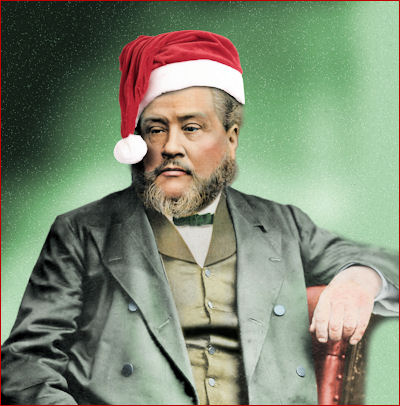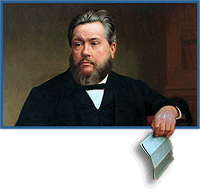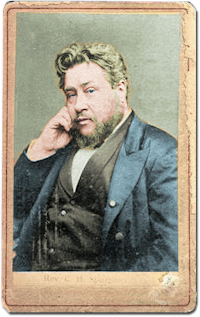How I Learned the Hard Way that Pious Gullibility Is No Virtue
by Phil Johnson


y last temporary part-time job in college was proofreading at Moody Press. I was hired to work twelve hours a week for about four weeks in the summer of '76. I was getting my B. A. at the end of the short summer term, and after that I hoped to find work in some kind of local-church ministry for a year; then my plan was to enroll at Dallas Seminary the following fall.
But I loved the work at Moody Press so much that on the day before graduation I signed on to work there full time as an editorial assistant. That simple, unplanned, last-minute decision was the pivot on which my entire life and career have turned.
(Someday I'll blog a full account of how I was hired by Moody Press in the most unlikely of circumstances. I also have a hundred vivid memories of that summer and the following one that would make excellent blog-fodder. I lived in a brownstone walk-up two blocks from Wrigley, worked most nights in a downtown funeral home, ran the first Chicago marathon, sang in the Moody Church choir, and met and married Darlene. Those were the best of times.)

nyway, one of the first books I proofread for Moody was a biographical account of a young woman who said she had lived through a tragedy-filled childhood in utter poverty on a Kickapoo reservation, found Christ through a remarkable turn of providence, endured all kinds of persecution, but persevered to become a motivational speaker for evangelical women's groups.
 Crying Wind
Crying Wind was the name of both the book and the author. Within a year of its release,
Crying Wind became Moody Press's best-selling book
ever. It was an extremely well-told story, and a real tear-jerker. To read it was to establish a deeply sympathetic personal connection with the author.
I loved the book. Everyone did.
Crying Wind herself spent a day in the Moody Press office shortly after I finished checking her page proofs. She was there mainly to meet with our sales and marketing staff, but she went to lunch with the editorial team. In her book she had portrayed herself as shy and emotionally tender—easily intimidated. Our editorial staff was a sizable group of very strong personalities and sticklers for grammatical precision, not necessarily an easy group to warm up to all at once. Crying Wind had expressed misgivings about the unfamiliar big-city features of Chicago. So we were all keen to put her at ease.
At the time, she lived near Tulsa, literally in the neighborhood I came from. Growing up in Oklahoma, I had several Native-American friends and relatives, so I knew that she and I had a few things in common we could talk about. I had looked forward to meeting her.
Right away, many things about her surprised me. One was that I never would have guessed she had experienced all she described in her book. Nothing about her features, her verbal skills, or her mannerisms suggested that she was Native American or that she had grown up in abject poverty. For someone as deprived of education and as utterly isolated from Main-Street America as her book claimed, she was also amazingly conversant with pop culture. She looked and talked like a Wheaton College alum, which is not at all what I expected from her own description of life among the Kickapoo.
Having read her book, I was
not surprised that she was a compelling story-teller. But what
did surprise me about that was how many of the stories she told during lunch that day had the ring of familiarity. I had heard slightly different versions of at least three of her tales. For instance, she regaled us with
the dead-cat-in-a-shopping bag story. I'd heard that story (with some slight differences) about a year earlier, but in Crying Wind's version it happened to someone she knew. That didn't trouble me a great deal, because I figured if it happened in Tulsa, I might have simply heard a third- or fourth-hand version. If Crying Wind personally knew the woman with the cat-in-the-bag, hers must be the canonical version of the tale.
I don't think the expression "urban myth" had been coined yet in 1977, but if I were going to describe her repertoire of stories today, I'd say it seemed like she culled them all from the pages of
Snopes.com.
At the time I merely thought it a mind-blowing quirk of cosmic destiny that Crying Wind had so much personal involvement in so many amazing stories I'd already heard. At the time, I was young, naive, and no doubt willingly over-gullible. I
wanted to believe her, and the almost supernatural serendipity of her tales merely increased the mystique of this amazing person.
Crying Wind—the book—became a runaway best seller. In fact, in less than two years it became (by far) the best-selling book Moody Press had ever published. Crying Wind wrote a sequel and by 1979 she was working on a third book. On the strength of her stories she had developed a thriving public ministry, speaking to large women's groups and churches. She always dressed in an authentic-looking native-American costume.
But by early 1979 a number of people were questioning Crying Wind's claims, including people from her own family. Moody Press investigated and soon learned that her entire story was fabricated. Crying Wind had no Native American ancestors. Her real name was Linda Davison Stafford. She had grown up and gone to high school in Woodland Park, Colorado, where she earned awards in creative writing.
Furthermore,
many of the major plot points in her story bore an uncanny resemblance to another author's phony life story. If I recall correctly, in a 1979
Christianity Today article about the fraud, they published her photo from a high-school yearbook. She was clearly a product of white middle-class American culture, not at all what she had claimed.

To Moody Press's credit, they were the first to expose the fraud, and they immediately dropped Mrs. Stafford's books from their line, even though both volumes were still (at the time) atop the Christian best-seller lists. Warren Wiersbe (my pastor in those days and a good friend to me) wryly told me he thought Moody Press should simply change the book's title to
Shooting Bull and keep it in their line as a fiction book.
He was joking, of course, but a few years later, Harvest House did virtually that. They picked up the book without changing a thing (not even the cover art), called it a "biographical novel," and re-released it. Crying Wind herself continued speaking to women's groups in her Indian costume. Most of them had heard all about the scandal, of course, but they
wanted to believe her story. They wanted it to be true so badly that many of them convinced themselves that Moody Press (and others who had merely told the truth) were the real villains in the whole ordeal.
Crying Wind is not so well known today, but
she is still speaking to evangelical groups under the pretense that her books tell "her life story as she remembers it."
Several Native American groups even list her books as valuable resources. The fraud she perpetrated, though definitively exposed and debunked more than thirty-one years ago, still lives on.
She's not alone. Over the past 40 years, the evangelical movement has given birth to dozens of flash-in-the-pan phonies, frauds, and bunko artists.
John Todd, Mike Warnke, Alberto Rivera, Bob Larson, and
Ted Haggard are a few names that come to mind. Todd and Rivera are both dead, but Jack Chick continues to publish their fraudulent claims as true.
All the others, though now out of the mainstream, are still engaged in some form of public "ministry" today—still profiting off reputations woven with webs of lies.
This is relevant, of course, to
the case of Ergun Caner, erstwhile Dean of Liberty Baptist Theological Seminary. For most of the past decade, Caner has been making demonstrably false claims exaggerating his childhood involvement in Islamic fundamentalism, his early indoctrination in the politics of Jihad, and his post-conversion "debates" with Islamic clerics.
Liberty University investigated his claims, acknowledged that he had made "factual statements that are self-contradictory," demoted him from the presidency of their seminary, and issued a statement announcing that Caner has "apologized for the discrepancies and misstatements." But they kept him on their faculty, and the Liberty party-line seems to be that the investigation actually "exonerated" Caner.
Those who questioned Caner's honesty in the first place are clamoring for more precise answers to some very specific questions. Caner himself is saying nothing, and no less than Norman Geisler has issued a series of
statements more or less in defense of Caner—basically suggesting that the whole controversy in the first place was a Muslim-Calvinist conspiracy to discredit Caner.
When I read Dr. Geisler's articles on the Caner scandal, it brought to mind a meeting I had with Dr. Geisler during the big Council on Biblical Inerrancy convention in San Diego in 1982. I was still working for Moody Press at the time, and Dr. Geisler was one of our authors. I needed to meet with him to discuss the cover design for Moody's re-release of
A General Introduction to the Bible. That question was settled fairly quickly, and then we had a long discussion over dinner about the state of evangelicalism. The
Crying Wind scandal came up in our conversation that evening, and Dr. Geisler expressed his dismay over the pious gullibility of evangelicals.
He was exactly right about that.
For the very same reason he is wrong about the Caner situation today.

However, the pathetic track record of evangelicals' consistent failure in dealing with frauds and bunko artists in our midst leads me to be pessimistic about any real resolution in the Caner scandal. The Liberty investigation most definitely did not "exonerate" Caner, but he remains on the Liberty faculty. Caner himself is stonewalling while a handful of his most outspoken supporters are doing their best to demonize his critics. If Liberty continues officially to offer sanctuary to Caner, he will eventually be able to weather the controversy without ever actually admitting any specific wrongdoing. Evangelicals—who have no stomach for protracted controversies and a 40-year habit of offering unconditional restoration to fallen leaders whether they truly repent or not—will soon turn against Caner's critics.
Of course, by this approach Caner, Liberty, and the little cadre of Arminian bloggers who are determined no-matter-what to defend Caner have already lost all credibility with those who love truth. That loss will most likely be permanent. Sadly, it is another major loss for American-style Evangelicalism, which has already made itself a laughingstock for all the wrong reasons.
























 t's not easy, especially nowadays, to keep love and truth together in a balanced way.
t's not easy, especially nowadays, to keep love and truth together in a balanced way.

 hrist did not merely speak the truth, but he was truth. Had he been truth embodied in an angelic form, he had possessed small power over our hearts and lives; but perfect truth in a human form has royal power over renewed humanity. Truth embodied in flesh and blood has power over flesh and blood. Hence, for this purpose was he born.
hrist did not merely speak the truth, but he was truth. Had he been truth embodied in an angelic form, he had possessed small power over our hearts and lives; but perfect truth in a human form has royal power over renewed humanity. Truth embodied in flesh and blood has power over flesh and blood. Hence, for this purpose was he born.


 hat did David have in mind when he spoke of "gaz[ing] upon the beauty of the Lord" in the Lord's Temple? Surely it was not any physical beauty embodied in the Tabernacle itself or its furnishings. Nor is it likely that David saw much loveliness in the Temple liturgy, which featured nonstop animal sacrifices that were anything but beautiful.
hat did David have in mind when he spoke of "gaz[ing] upon the beauty of the Lord" in the Lord's Temple? Surely it was not any physical beauty embodied in the Tabernacle itself or its furnishings. Nor is it likely that David saw much loveliness in the Temple liturgy, which featured nonstop animal sacrifices that were anything but beautiful. And Scripture was always at the heart of corporate worship in Israel. My favorite picture of Old Testament worship is Nehemiah 8, where the people of Jerusalem simply stood for hours as the priests read the Word of God. They weren't singing, swaying to the choir and orchestra, or indulging in any kind of pageantry. They were listening to (and being profoundly moved by) the Word of God as it was read and explained to them.
And Scripture was always at the heart of corporate worship in Israel. My favorite picture of Old Testament worship is Nehemiah 8, where the people of Jerusalem simply stood for hours as the priests read the Word of God. They weren't singing, swaying to the choir and orchestra, or indulging in any kind of pageantry. They were listening to (and being profoundly moved by) the Word of God as it was read and explained to them. The
The  think we must look very carefully and very steadfastly to the soundness of that gospel which we proclaim and preach. Soundness, I say—and here possibly I may be touching upon a delicate subject, but what signifieth if that subject be of the utmost and highest importance?
think we must look very carefully and very steadfastly to the soundness of that gospel which we proclaim and preach. Soundness, I say—and here possibly I may be touching upon a delicate subject, but what signifieth if that subject be of the utmost and highest importance?

 ur forefathers were far less tolerant than we are, and it is to be feared that they were also more honest. It will be a sad discount upon our gain in the matter of charity if it turn out that we have been losers in the department of truthfulness.
ur forefathers were far less tolerant than we are, and it is to be feared that they were also more honest. It will be a sad discount upon our gain in the matter of charity if it turn out that we have been losers in the department of truthfulness.
 o say that "a creed comes between a man and his God" is to suppose that it is not true; for truth, however definitely stated, does not divide the believer from his Lord. So far as I am concerned, that which I believe I am not ashamed to state in the plainest possible language; and the truth I hold I embrace because I believe it to be the mind of God revealed in his infallible Word. How can it divide me from God who revealed it? It is one means of my communion with my Lord, that I receive his words as well as himself, and submit my understanding to what I see to be taught by him. Say what he may, I accept it because he says it, and therein pay him the humble worship of my inmost soul.
o say that "a creed comes between a man and his God" is to suppose that it is not true; for truth, however definitely stated, does not divide the believer from his Lord. So far as I am concerned, that which I believe I am not ashamed to state in the plainest possible language; and the truth I hold I embrace because I believe it to be the mind of God revealed in his infallible Word. How can it divide me from God who revealed it? It is one means of my communion with my Lord, that I receive his words as well as himself, and submit my understanding to what I see to be taught by him. Say what he may, I accept it because he says it, and therein pay him the humble worship of my inmost soul.

 y last temporary part-time job in college was proofreading at Moody Press. I was hired to work twelve hours a week for about four weeks in the summer of '76. I was getting my B. A. at the end of the short summer term, and after that I hoped to find work in some kind of local-church ministry for a year; then my plan was to enroll at Dallas Seminary the following fall.
y last temporary part-time job in college was proofreading at Moody Press. I was hired to work twelve hours a week for about four weeks in the summer of '76. I was getting my B. A. at the end of the short summer term, and after that I hoped to find work in some kind of local-church ministry for a year; then my plan was to enroll at Dallas Seminary the following fall. nyway, one of the first books I proofread for Moody was a biographical account of a young woman who said she had lived through a tragedy-filled childhood in utter poverty on a Kickapoo reservation, found Christ through a remarkable turn of providence, endured all kinds of persecution, but persevered to become a motivational speaker for evangelical women's groups.
nyway, one of the first books I proofread for Moody was a biographical account of a young woman who said she had lived through a tragedy-filled childhood in utter poverty on a Kickapoo reservation, found Christ through a remarkable turn of providence, endured all kinds of persecution, but persevered to become a motivational speaker for evangelical women's groups. Crying Wind was the name of both the book and the author. Within a year of its release, Crying Wind became Moody Press's best-selling book ever. It was an extremely well-told story, and a real tear-jerker. To read it was to establish a deeply sympathetic personal connection with the author.
Crying Wind was the name of both the book and the author. Within a year of its release, Crying Wind became Moody Press's best-selling book ever. It was an extremely well-told story, and a real tear-jerker. To read it was to establish a deeply sympathetic personal connection with the author.
 However, the pathetic track record of evangelicals' consistent failure in dealing with frauds and bunko artists in our midst leads me to be pessimistic about any real resolution in the Caner scandal. The Liberty investigation most definitely did not "exonerate" Caner, but he remains on the Liberty faculty. Caner himself is stonewalling while a handful of his most outspoken supporters are doing their best to demonize his critics. If Liberty continues officially to offer sanctuary to Caner, he will eventually be able to weather the controversy without ever actually admitting any specific wrongdoing. Evangelicals—who have no stomach for protracted controversies and a 40-year habit of offering unconditional restoration to fallen leaders whether they truly repent or not—will soon turn against Caner's critics.
However, the pathetic track record of evangelicals' consistent failure in dealing with frauds and bunko artists in our midst leads me to be pessimistic about any real resolution in the Caner scandal. The Liberty investigation most definitely did not "exonerate" Caner, but he remains on the Liberty faculty. Caner himself is stonewalling while a handful of his most outspoken supporters are doing their best to demonize his critics. If Liberty continues officially to offer sanctuary to Caner, he will eventually be able to weather the controversy without ever actually admitting any specific wrongdoing. Evangelicals—who have no stomach for protracted controversies and a 40-year habit of offering unconditional restoration to fallen leaders whether they truly repent or not—will soon turn against Caner's critics.








